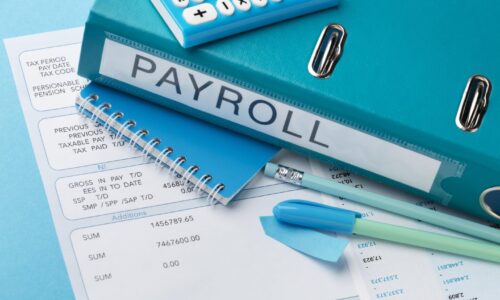Overview
Taxation is the main source of revenue for most governments, and the business sector is the largest contributing factor, year after year.
With recent data from the Organization for Economic Co-operation and Development (OECD) showing that 93% of US tax revenue comes from businesses, the Internal Revenue Service (IRS) takes a proactive approach when it comes to business taxation.
For this reason, it’s important to have an in-depth understanding of your tax obligations as a business owner so you can be in good standing year-round.
Below are several tips to save you time and money when it comes to filing taxes.
8 Tax Deductions for Business Owners
Every business owner feels the pressure of having to pay high amounts of taxes every year. Fortunately, by claiming tax deductions, owners can significantly reduce their taxable income.
Here are some expenses you can write off as deductions to lower your tax liability:
Self-employment tax deduction
A self-employment tax deduction can lessen your tax burden if you’re self-employed. Tax Cuts and Jobs Act (TCJA) provides that you can deduct half of your social security and medicare taxes from your net income, that is, 7.65%. In essence, the employer’s share of tax gets treated as a business expense.
Business travel expenses
Owners can write off business-related travel expenses, meals, airline tickets, lodging, rental car use, business car use, laundry, and any other costs the IRS provides.
To qualify as a work-related trip, it must be:
- Essential for the success of your business.
- Away from your tax jurisdiction, i.e., away from the city your company is located.
- Away from home for a duration longer than a normal day’s worth of work.
Office supplies
Office supplies such as printers, computers, software, papers, and pens can be deducted as long as they were used for work within the year of purchase. Shipping and postage expenses also qualify as deductions.
Office expenses
Office expenses may include phone and internet fees and business meals. For qualifying meals, you can deduct up to 100%, which will be in effect through December 31, 2022. You must provide proper documentation showing the date, location, and total costs to prove it was business-related, so keep a good record of all your receipts.
Advertisements and promotions
Costs related to business promotion, including making business cards, digital marketing strategies, print advertisements, and website development, are fully deductible.
Depreciation
As a business owner, you can also write off the costs of depreciating assets like cars or machinery and be reimbursed for any related expenses over their lifespan.
Bank interest
You may have to borrow money from financial institutions to help finance your business operations as an owner. On your annual filings, you can claim a 100% deduction for the interest on the loan as well as any other bank charges, such as annual business credit cards or service fees.
Educational expenses
Education costs that went towards improving your work skills and that of your employees are eligible to be deducted. These may include seminars, fieldwork classes or training, industry publications, and other business learning material.
Make filing taxes easier
Here are some business tips to make your tax season manageable:
- Choose the suitable business classification: The tax authorities provide several different classifications for businesses. These include partnerships, sole proprietorships, limited liability companies, and corporations. Make sure you select the appropriate structure that will provide your business with the right tax benefits.
- Maintain accurate and detailed records: Keeping a record of all the business’s financial statements throughout the year is how you can keep track of the business transactions, and ensure you have all the proof you need in case the IRS ever came knocking on your door. It also allows you to provide proof when filing your tax deductions at the end of the year.
- Hire a tax professional: Sometimes, tax strategies can get confusing if you’re not well versed in the area. To set yourself up for success, consider working with a trusted accountant who is an expert in tax regulation and can teach you the way.
- Separate business expenses from personal expenses: Separating your business and personal finances ensures effective money management. For instance, it’d be best to open a separate business bank account for any business income or credit. This eliminates common mistakes during taxation, like posting a personal transaction as a business expense.
- Use accounting software: You can streamline your tax operations by using accounting software such as QuickBooks or Sage, which prevents errors that could happen through manually filing. Also, these digital tools can save a lot of time and generate optimal reports.
- Prepare early for the tax season: As a business owner, you should get to know the tax filing dates for different types of returns. This way you can have all the necessary documents ready in advance and get through the tax filing process easily and seamlessly. Aside from that, this is the perfect time to consult your accountant about how to plan for next year and decide on legal strategies to reduce the overall tax obligation at the end of the year.
Ways to avoid tax audits
Below are some ways to prevent your business from being audited:
- Double-check your numbers: Your tax return can attract scrutiny if there are inconsistencies or numbers that don’t add up. Therefore, to be on the safe side, be sure to report accurate statistics and double-check them before you submit them to the IRS. Hiring a certified accountant or using accounting software to improve efficiency is recommended.
- Avoid reporting a loss every year: Reporting a loss more than two times in five years can make you a perfect candidate for a tax audit. The IRS can disallow your expense deductions if your business is declared a hobby.
- Don’t overpay shareholders: Paying high salaries to employees who are also shareholders may be considered a strategy to lower taxes by the IRS, which can lead to the in-depth investigation of a company.
- Only claim qualifying deductions: Always claim the tax deductions and reliefs your business is eligible for. For example, claiming a home office deduction while paying business rent elsewhere can raise questions.
- Be conscious of independent contractors: Having more independent business contractors than payroll employees is an escape strategy. That’s because the IRS provides clear guidelines on who qualifies as an independent contractor. For this reason, ensure you follow the rules and consult a tax attorney for any clarifications.
Conclusion
To be an accountable business owner and avoid being audited, it’s vital that you clearly understand the federal, state, and local tax requirements. Doing so will allow you to properly plan your finances and track how much money flows in and out of your business. Be sure to file your tax returns correctly every year and claim your deductions as well as show proof to prevent scrutiny by the tax authorities. Note that tax legislations are subject to change, so make sure to stay up to date with the current business tax laws.






